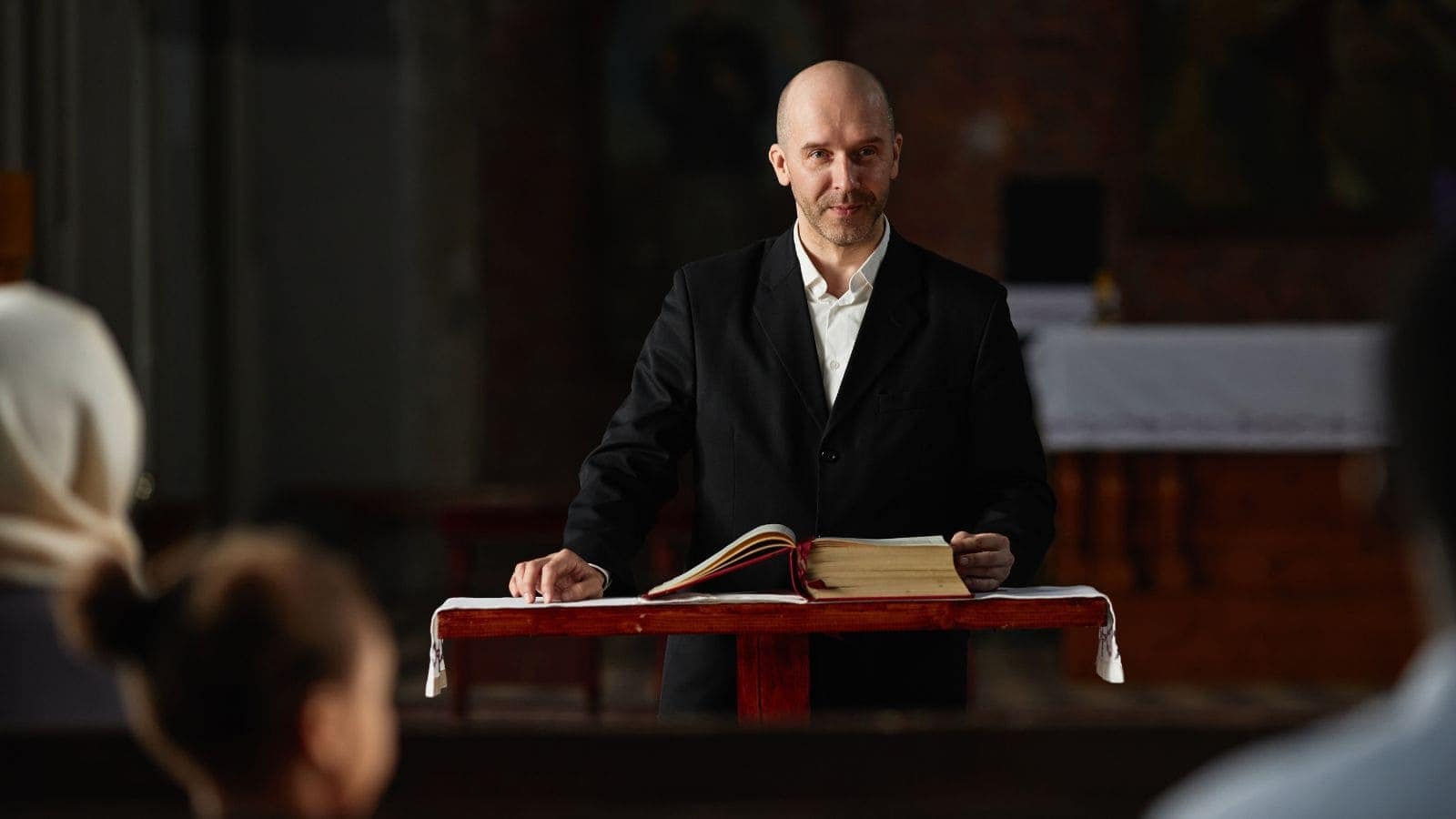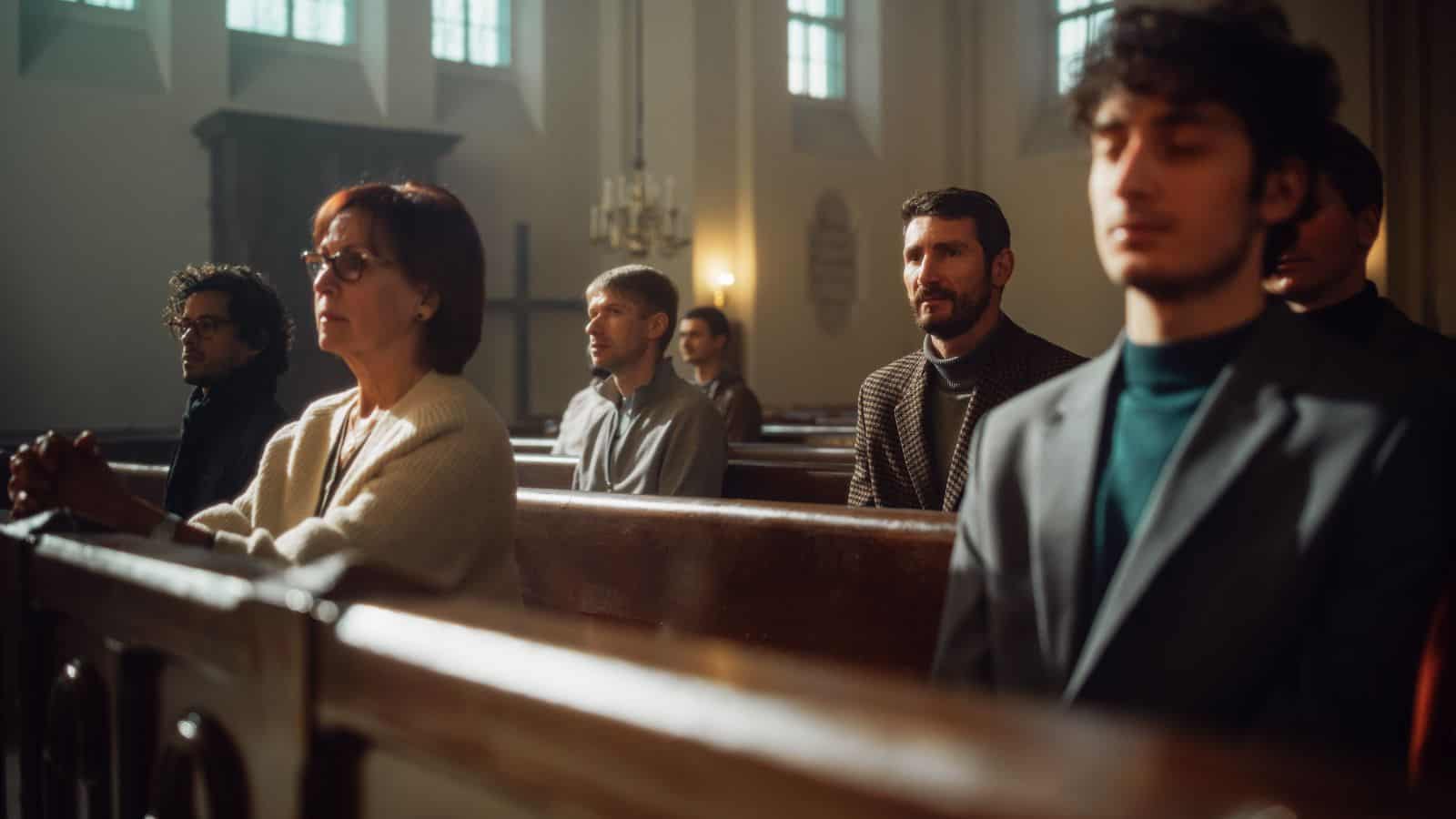More Baby Boomers are skipping church these days, and this trend seems to be influenced by various factors, such as changing personal beliefs, evolving social dynamics, and shifting cultural values. Here are 20 reasons why this major shift is happening.
Growing Disillusionment with Church Leadership

Mastermind Quotes explains, “From lavish spending to abuse scandals to perceptions of hypocrisy around charity work, many boomers have grown disillusioned with the behavior of church leaders and members.” These problems break their trust and make it tough to stay involved with the church.
Shifts in Personal Beliefs

It’s no surprise that, as boomers get older, their views will change. They might start questioning beliefs they used to accept easily, which can make them less interested in going to church or following traditional religious practices. They may have become more skeptical about the church and would rather not go.
Increased Focus on Individual Spirituality

Did you know many boomers have chosen personal spirituality over organized religion? They like exploring their faith on their own terms, leading to less communal worship. This trend shows a growing preference for personalized spiritual experiences.
Prioritizing Family Time

Something boomers find incredibly important is family time, so they would much prefer this over going to church. As their kids and grandkids get older, family get-togethers and activities take priority, especially if younger relatives don’t attend church, often leading to less frequent church visits.
Health and Mobility Issues

Younger people might not realize that health and mobility problems can make going to church tough as boomers get older. For some, it becomes almost impossible to attend weekly services, causing them to slowly drift away from church activities.
Dissatisfaction with Church Services

Some boomers prefer to stick to what they know best, so they don’t enjoy modern church services because they find them unappealing or irrelevant. The new worship styles, music, and programs just don’t click for them. This can cause them to stop attending regularly and look for more fulfilling spiritual experiences in other places.
Economic Concerns

Money problems can affect boomers’ church attendance, thanks to the cost of living crisis. If they’re facing financial issues, they might need to work longer hours or get extra jobs, which leaves them with less time and energy for church. This financial stress can lead to them being less involved in church activities.
Shift to Online Worship

With new and improved technologies, online worship services have changed how boomers practice their faith. Many prefer the convenience of attending services from home, meaning they might go to church less often, but they stay spiritually active through their online presence.
Perception of Irrelevance

As it happens, some boomers are starting to think that the church is out of touch with today’s issues. They feel church teachings don’t deal with modern life’s complexities nor offer the support many people need. This can make them feel disconnected and less interested in joining church activities.
Political and Social Differences

It’s becoming increasingly normal for churches to divide over political and social issues, making some Boomers uncomfortable. When church groups take firm positions on hot topics, it can push away those with different opinions, causing them to feel left out and move away from the church community.
Desire for More Authentic Relationships

One key thing for boomers is seeking genuine and authentic connections; they may not find them in a church setting. The formality and structure of church services can sometimes feel impersonal. This desire for authentic relationships can drive them to seek community outside the church.
Preference for Other Community Activities

It’s often said that some boomers find community and fulfillment through other activities outside of church. Clubs, volunteer organizations, and social groups can offer meaningful engagement and a sense of purpose, reducing their need to participate in church-related activities.
Cultural Shifts and Secularization

We might overlook that cultural changes and a move toward secularization influence boomers’ views on religion. As society becomes more secular, attending church might seem less necessary. These broader cultural trends can impact personal decisions about church involvement.
Negative Past Experiences

We should be aware that past negative experiences can influence Boomers’ current relationship with the church. Experiences of judgment, exclusion, or conflict within a church community can leave lasting impressions and deter them from continuing their participation.
Lack of Engagement Opportunities

For many boomers, there may not be enough meaningful engagement opportunities within the church. If they do not find ways to contribute that align with their skills and interests, their involvement and attendance can wane over time.
Increasing Individualism

As the church is all about community, a growing emphasis on individualism in society can lead Boomers away from group religious practices. The value placed on personal autonomy and self-directed spirituality often contrasts with the collective nature of church worship and activities.
Travel and Leisure Priorities

With more free time, many boomers prioritize travel and leisure activities in their retirement years. These pursuits can conflict with regular church attendance, and as they explore new hobbies and interests, church participation might take a backseat.
Availability of Alternative Spiritual Practices

Alternative spiritual practices like meditation, yoga, and mindfulness can be more appealing to boomers. They may provide spiritual fulfillment outside of traditional religious settings, contributing to a decline in church attendance.
Search for Meaning Outside Religion

As humans, we like to feel as though we belong somewhere, and this means boomers often seek meaning and purpose in ways that do not involve traditional religion. Community service, creative pursuits, and personal development activities can offer a sense of fulfillment, reducing the need for church participation.
Changes in Church Demographics

It’s important to keep in mind that shifts in church demographics can make some boomers feel out of place. If their church becomes predominantly younger or older, they might struggle to find their niche, leading to a gradual disengagement from church activities.
Up Next: Do You Know Your Rights? 17 Things You Don’t Have to Answer When Stopped by Police

The thought of getting stopped by the police is a nerve-wracking prospect for most people. It can be even worse if you’re not sure what you should and shouldn’t say, creating a sense of paranoia, anxiety, and confusion. If you’re worried about the potential for a confrontation with the cops, we’re here to help. This list covers 17 things you don’t have to answer when stopped by police officers.
Do You Know Your Rights? 17 Things You Don’t Have to Answer When Stopped by Police
18 Things That Say You Are Middle-Class and Not Rich

The difference between the rich and middle class can be confusing, but the two couldn’t be further from each other in reality. In this article, we look at 18 signs that someone is middle class but not at all rich or wealthy.
18 Things That Say You Are Middle-Class and Not Rich
18 Reasons You Feel Like You Don’t Belong Anywhere

Feeling like you don’t belong anywhere can feel incredibly isolating. We need companionship to keep us connected to the world, so if you’re struggling to form relationships and don’t feel that you don’t fit in, here are 18 reasons why that might be.

